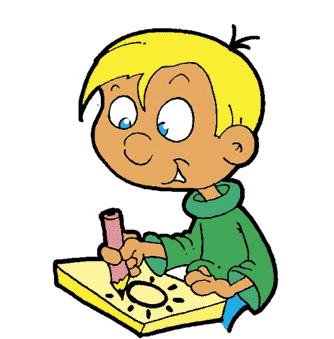
Learning to Improve
by Larry Cohen
 In this one article, I wish to provide “universal” information on learning how to get better at bridge. Sure, you can take many lessons and read many books. A good memory is useful, but it is not the key ingredient to improving your bridge game.
In this one article, I wish to provide “universal” information on learning how to get better at bridge. Sure, you can take many lessons and read many books. A good memory is useful, but it is not the key ingredient to improving your bridge game.
Here, in a nutshell are my observations:
1) Concentration at the table is the number-one ingredient to playing well. Some days are just bad-hair days. Your brain won’t be in high gear (personal issues, medication, aging, etc.). On those days, you will make errors. Just accept it. Some days are worse than others. When you are having such a day, stop lower in the bidding and hope the other players are going down in game/slam.
2) Logic is much more important than memory. Don’t try to solve bridge problems by rote. Face each decision (in bidding, play, or defense), by using a logical checklist. It goes to the tune of, “If A, then B.” “If not C, then D.” Translated to bridge terminology, your thinking needs to go: “Since she bid hearts twice, she has six of them, so I should not insist on notrump.” Or, “Since partner didn’t lead diamonds, I doubt he has the ace-king, so declarer must have one of the high diamonds.”
3) Memorizing and learning new conventions is not the way to improve your game. Sure, if you have a good memory and lots of time to thoroughly study and learn high-tech methods (and a partner who does the same), it will be a slight help. But, I see this to be a poor use of time and effort. It is much better to understand completely the most important conventions. Yes, you all know Stayman and Blackwood, but even those methods are often misunderstood and abused. Negative Doubles and even something as basic as Takeout Doubles and Responses are an important area to master. These come up lots of times every session. Thorough understanding of all doubles and basic bids on the one- and two-levels would be infinitely more useful than learning “transfer lebensohl” just to keep up with the Joneses.
4) At-the-table attitude and demeanor is crucial to playing well. Keep partnership harmony. No faces. No negative comments to partner. Be nice to the opponents. Try to actually enjoy this great game. It will clear up your mind to think more clearly and logically.
5) When you do take bridge lessons (or read bridge), please be realistic. Be easy on yourself. Even a college student can’t memorize tons of information and accurately recall it weeks and months later. When learning bridge, try to grasp just a few key issues clearly—don’t bite off too much at once. When I teach a two-hour session, and give, say 15 “pointers,” I’m happy if my students walk away and have learned 3-4 of them well. Until you’ve heard the same lesson over and over, it is not reasonable to expect to get it all.
There isn’t much technical bridge advice in this article (there is tons of it at www.larryco.com if you wish to indulge). However, I feel that if you read #1-5 before each session, work hard at these concepts, and don’t fall back into your old habits, you will get instant gratification. Your game will improve as will your experience. Good luck!
For an audio tape to reinforce these issues, click here.